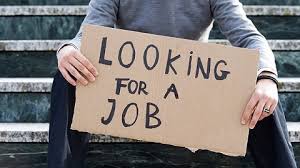Women in J&K marry very late compared to the women from all other states, a survey says.
The average age of marriage among women in the state has risen to 25 years, against the all-India average of 21.8 years, says the survey, “Men and Women in India”, conducted by the Ministry of Statistics, the Government of India.
The average age of marriage for women in J&K’s urban areas is higher (25.8 years) than in rural areas (24.9 years).
The prevalence of late marriages among women in J&K had been pointed out by earlier surveys also, but the fresh survey has said the average age of marriage among women is “rising”.
Social scientists attribute late marriages to a variety of factors, but the “lack of job opportunities among women” is believed to be the key reason.
Professor of Sociology at the University of Kashmir Mohammad Amin Bhat believes that “marriages have become a materialistic activity rather than an emotional, cultural and social one”.
“Earlier it used to be about whether the ‘boy is working’, a factor parents would take into consideration to ensure financial security of their daughter. Now, the same question is asked about the girl too,” he said.
However, due to limited avenues of employment in the state, jobs elude most women as “years of youth slip by” because they are already at a disadvantage, sociologists say.
The unemployment rate among the women in the age group of 18-29 years in JK is 45.1 percent, as per the last Economic Survey Report (2016-17). This is among the highest rates of unemployment in all states. JK also has the highest overall unemployment rate (male and female combined) among all states, except Andaman and Nicobar Islands.
Also, Labor Force Participation Rate of females in only 10.5 per cent, the lowest among all states, in J&K, according to Report on Fifth Annual Employment – Unemployment Survey (2015-16) by the Ministry of Labour, Government of India.
The LFPR is defined as the section of working population in the age group of 16-64 currently employed or seeking employment.
Social commentator Ali Mohammad believes that seeking an employed bride is a “new form of dowry”.
“It is the prospect of a continuous flow of dowry that makes men and families prefer working women only,” he said.
Fayaz Ahmed Zaroo, Head Humsafar Marriage Bureau, an Islamic marriage counseling center that has been actively involved in promoting simple marriages, said, “Marriages these days are more about exchange of material possessions, about status, about the income of the couple than what it should be.”
Marya Jabeen, a social researcher, believes more and more women in Kashmir who have crossed the age of 35 years end up not marrying or compromising on their choice.
“Well settled men seek young, working women. There are no takers for aging, jobless women,” she said.
As unemployment grows across valley, finding a match for women has becomes difficult




